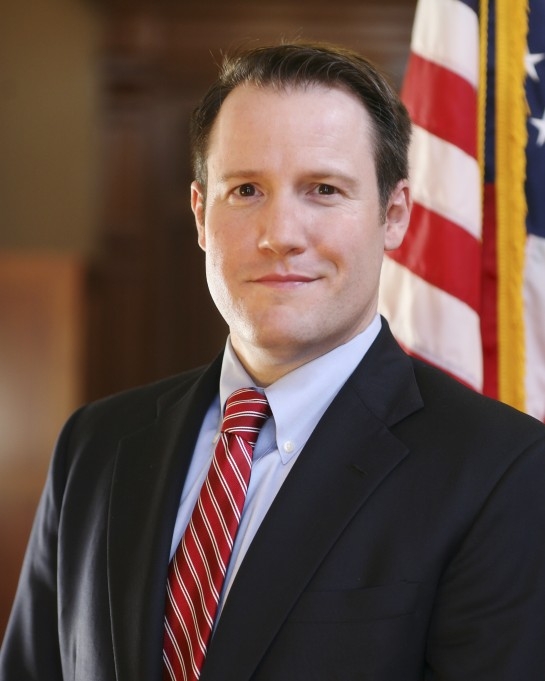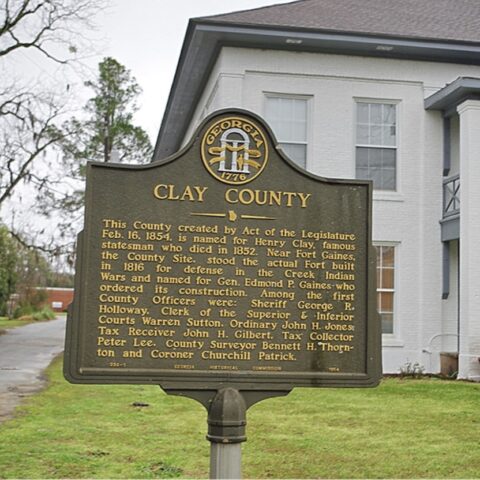
Scott Holcomb represents District 81 in the Georgia House of Representatives. Before being elected to office, he served as an attorney in the U.S. Army Jag Corps, with overseas postings in Bosnia, Afghanistan, and Iraq. He is currently enrolled in the Executive MBA program at UGA’s Terry College of Business, and is a member of the Truman National Security Project, an institute focused on training the future generation of progressive national security leaders. In 2012, Holcomb was named one of Georgia’s Top 40 under 40 by Georgia Trend Magazine, and he has received Environmental Leadership Awards from Georgia Conservation Voters in 2011 and 2012. His name has been mentioned as a potential Democratic challenger in the race for Saxby Chambliss’s Senate seat in 2014. He currently has a law practice in Atlanta. Representative Holcomb sat down with Georgia Political Review’s Andrew Jarnagin to discuss the 152nd Legislative Session and Georgia’s future in the United States and the world.
What was the most important issue the legislature tackled this session?
We passed juvenile justice reform, and it’s a really important policy change for the state. The change was driven mostly by economics. The current policy costs around $80,000 a year per person in the system, and there’s an incredibly high recidivism rate, hovering around two-thirds: it’s not working. Our new plan was even noted in The Economist as a model for other states (see here). There was an opportunity to make some significant reforms that provide for justice, but also provide a path forward for people to reintegrate into society.
Several controversial gun measures were proposed in the General Assembly this year that raised a lot of eyebrows around campus. Since they were never brought to a vote, do you think there will be another push for gun laws in the next session?
There was House Bill 512, which allowed firearms on college campuses, though it was pretty expansive in other areas as well. Chancellor Huckabee and the Board of Regents testified against it, law enforcement testified from campuses, and they all opposed it. So I voted against the bill, primarily because of the college campus issue. I didn’t think it was good policy for the General Assembly to ignore the advice of all these experts. There was a competing bill called Senate Bill 101, which was promoted by the NRA (National Rifle Association), and I supported it – it made sense to me. It allowed those who were under 21 but had served in the military to get permits before they turn 21. It also allowed for reciprocity with other states, and it allowed for guns in public housing. There’s a Supreme Court case, DC v. Heller, which is one of the major cases on the Second Amendment, where the Court held very clearly that there’s a constitutional right to have a firearm in your house for self-defense. When it came to committee, unfortunately, the Republicans on the Public Safety Committee made SB 101 into HB 512 – they basically merged them together. It never came up for a final vote, so I would expect to see some legislation next year.
There’s a lot of interest here on campus about the future of the HOPE scholarship. In the long term, what needs to be done to preserve the HOPE scholarship?
In terms of the specifics, I don’t have the answer. But I do know that we have to do it: there’s been no greater engine for the state than the HOPE scholarship. It has completely transformed higher education, and it’s made Georgia much more competitive in the number of skilled workers we have. In my view, one of the things the state needs to do is to close the skill gap. There are hundreds of thousands of jobs across the country that aren’t being filled because workers don’t have enough skills. I’ve been very lucky to have traveled pretty extensively around the world, and it’s clear to me that we’re in a really competitive global market. You have to be incredibly smart and understand where the world is and where it’s going. Higher education is the key to that, and we have to make sure that we have a vibrant and healthy system in the state.
You represent much of Dekalb County, where the School Board debacle has been raging for some time, and you’ve been very vocal in supporting intervention in the Board. Has the situation been resolved with the appointment of the new members?
I agreed with the Governor’s decision to suspend the members of the Board. I was the first elected official to publicly state that. It wasn’t an easy thing to do, but I felt strongly that it was the right decision. The consequences of not fixing the school board were rather dire for the entire community. I am pleased with the people that he has appointed – I think that they’re all very capable, competent, and committed to student achievement. The problem was that some of the former board members weren’t committed to student achievement. I’m not convinced, however, that this was the ideal process. In respect to the pending lawsuits, so far, the view that I support has won out in the courts, and hopefully that will continue. I really wish that those who are litigating would take a pause and consider what’s best for the community, and let the existing board get to work and finish its charge of restoring the school situation.
Over the next five years, what do you see as the biggest issue facing the state?
I think the biggest issue is for us to make ourselves as globally competitive as possible. I think Georgia is well positioned to be a world leader in logistics. We have the best airport in the world, and there’s broad bipartisan support for deepening the Port of Savannah. I think that’s absolutely critical to our future. We need to make sure that we have the infrastructure to get our goods and services to and from markets. Investments are happening around the country, and economists say that now is the time to do it. There are incredibly low interest rates, and there is a lot of available labor, so it’s the perfect time to get to work. Atlanta and Georgia used to be the conversation when you talked about the southeastern United States. Increasingly, it’s Charlotte and North Carolina, and that bothers me. Most of the reports that you see from the Council on Foreign Relations or The Economist talk about North Carolina and Charlotte, because they’ve invested in education and infrastructure, and we need to be aware of that. One of the things that frustrates me is that I don’t hear a compelling, convincing narrative of what Georgia’s future looks like. It’s vital to have a vision of who you are, and who you want to be, and have a plan set out on how you’re going to go about accomplishing that.
We also need to continue to improve our education. I don’t accept where we are in the educational rankings. We need to do a better job of demonstrating to students why school is important and why education matters. To that end, that doesn’t mean that everyone needs to get a PhD, but it does mean that everyone needs to finish high school. It does mean that a lot of people should consider going to technical school. It does mean that we want to have as many students as we can in our colleges and universities.
What future plans do you have in politics?
I am very interested in continuing to serve this state. I think that I bring to the table a unique set of experiences and skills, particularly in having a military background and understanding national security and foreign policy. I am also really interested in the economy and global competitiveness. Taking part in the UGA Executive MBA program has really deepened my understanding of economics, and I have found that a lot of the views I have in terms of policy were affirmed by what I learned in business school. So where that all goes, I don’t know yet. But I know that I’d like to continue to be a part of the conversation in moving our state forward.

